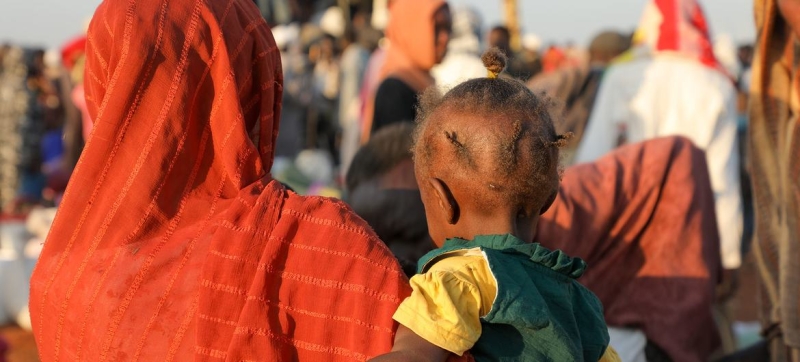
More than 24 million people in Sudan suffer from acute food insecurity. Sudan’s food crisis worsens, leaving millions on the brink of survival Peace and Security
In Sudan, where armed clashes have continued for 20 months, the food situation is rapidly deteriorating, with millions of people facing food shortages and famines already reported in several regions of the country. The World Food Programme (WFP) and UNICEF are warning of the possibility of full-scale famine.
Four months ago, famine was first officially confirmed in Zamzam camp in North Darfur. It has since spread to new areas, including the Western Nuba Mountains and camps for internally displaced people. More than 24 million people in Sudan are suffering from acute food insecurity, according to the latest report by the Independent Famine and Prospects Review Committee under the Food Security Classification. Of these, more than 600,000 are in a state of critical danger, close to disaster.
Read also:
The UN is sounding the alarm: Sudan is on the verge of full-scale famine
These alarming figures are being recorded during the period that is usually considered the harvest season, when food should be in abundance. However, the ongoing armed conflict is preventing the delivery of food to the affected areas. Agriculture has been destroyed, markets are not functioning, and the prices of basic goods have risen so much that people do not have enough money to buy them.
In areas of active conflict, humanitarian organizations cannot easily deliver food, water and medicine. In some areas, such as parts of the capital Khartoum and the Al Jazeera region, famine conditions may already be present, but the lack of reliable data makes it difficult to confirm this.
Why is this happening?
The situation in Sudan is due to a combination of factors. Armed conflict and ongoing violence are forcing millions of people to flee their homes, leaving them unable to farm or buy food.
In addition, the economic crisis and devastation are driving up food prices, making them unaffordable for most families, while limited humanitarian access due to fighting and logistical difficulties is leading to shortages of food, water and medicine in the hardest-hit areas.
Call to Action
Humanitarian organizations are doing everything possible to deliver aid to the affected areas. In recent months, WFP has provided food assistance to more than 800,000 people in areas at high risk of famine, including more than 135,000 residents of Zamzam camp. UNICEF has screened more than 6.7 million children under five for malnutrition this year and provided treatment to more than 415,000 of them. Despite the difficulties, significant results have been achieved thanks to the work of mobile teams and partnerships with local authorities and NGOs.
People go months without food, losing strength and health
WFP and UNICEF representatives emphasize that without immediate action by the international community, the situation will continue to deteriorate. Millions of people, including children, are at risk of death.
“People have gone months without food, losing strength and health,” said WFP spokesman Jean-Martin Bauer. “We are doing everything we can to deliver aid where it is most needed. But conditions on the ground are extremely difficult and dangerous.”
“Millions of children are on the brink of survival. Immediate supplies of food, water and medicine can save thousands of lives,” added UNICEF representative Lucia Elmi.
Organizations are calling for an immediate ceasefire to ensure safe and unhindered access for humanitarian missions. This is the only way to prevent further deterioration of the situation and save the lives of millions of people.
